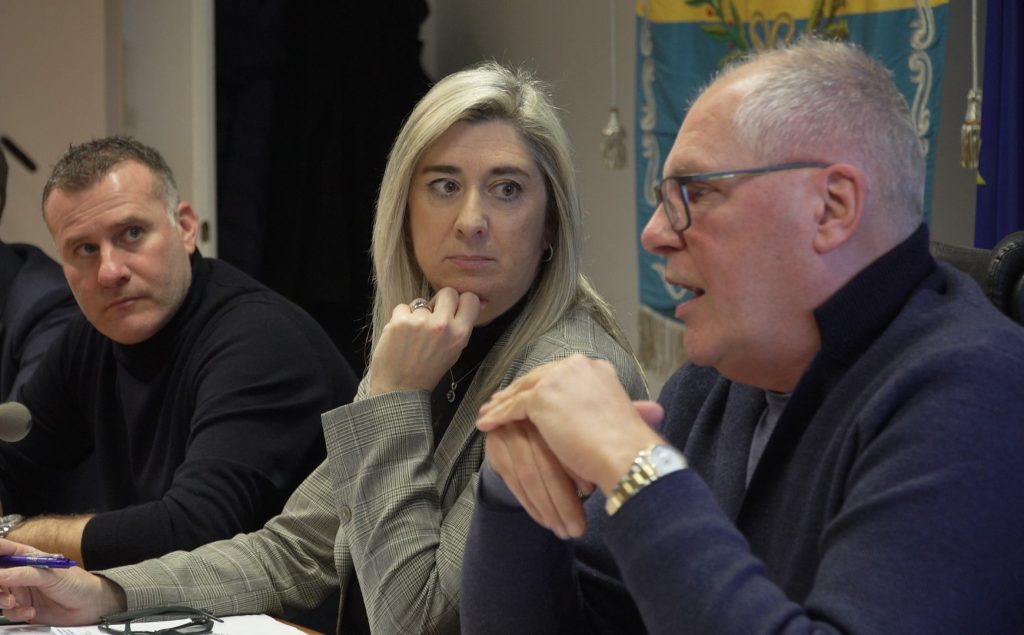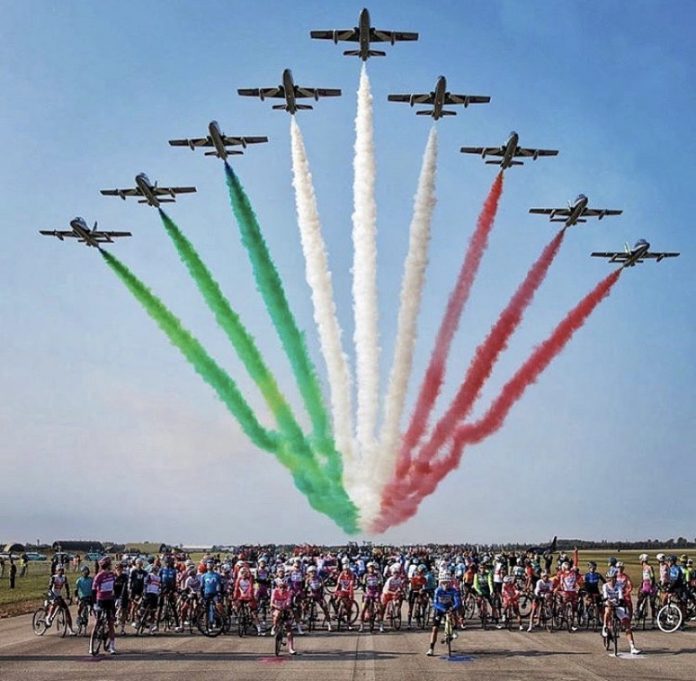by EH
As the Giro d’Italia, one of the world’s most celebrated cycling events, prepares to return to Friuli Venezia Giulia, the region has announced a significant investment of €6.5 million in road infrastructure to ensure a smooth ride for participants and boost the region’s visibility on an international stage.
The funding, allocated by the regional government, was unveiled during a meeting in Gonars on Monday, where mayors of municipalities along the Giro’s route gathered to discuss preparations. The meeting, chaired by Paolo Urbani, head of the local stage committee, included discussions about road maintenance, logistical support, and strategies to enhance the event’s impact on the region.

“This allocation demonstrates the attention Friuli Venezia Giulia has always given to this significant event,” said Cristina Amirante, the Regional Councillor for Infrastructure. “It will be a team effort involving multiple departments, and this will also be an opportunity to support local administrations in maintaining roads traversed by the race.”
Amirante detailed the distribution of the funds: €3 million will go to FVG Strade, the regional road authority, for repairs on roads under its jurisdiction, as well as municipal road improvements. An additional €3.5 million will be allocated to EDRs (local economic development entities) for resurfacing and repairs on other critical routes.
“Our goal is to make the route in Friuli Venezia Giulia as high-performing as possible,” Amirante said. “This investment reflects our commitment to supporting one of the most widely followed events in the world.”
A Platform for Global Exposure
The Giro d’Italia, followed by millions globally, serves as an international showcase for host regions, and Friuli Venezia Giulia is no exception. Last year’s edition attracted over 700 million viewers, a staggering figure that underscores the event’s potential to elevate the region’s profile.
“Being part of the Giro is a tremendous opportunity for Friuli Venezia Giulia,” Amirante said. “It not only strengthens our reputation on the international stage but also delivers tangible benefits to local communities, from increased tourism to economic growth.”
In recent years, the region has positioned itself as a key player in hosting major sporting events, leveraging them as tools for promoting its unique landscapes, cultural heritage, and local businesses.
Balancing Logistics and Legacy
Ensuring the success of a high-profile event like the Giro d’Italia requires meticulous planning. During Monday’s meeting, technical aspects of the race were reviewed, including road conditions, signage, and safety protocols. The full route of the 2025 Giro is expected to be officially unveiled next week by race organizers RCS Sport.
The investment in road maintenance, officials say, is not just for the race but also part of a broader effort to improve the region’s infrastructure. “This is an opportunity to leave a lasting legacy,” Amirante said, emphasizing that the upgrades will benefit residents and visitors long after the cyclists have crossed the finish line.
As Friuli Venezia Giulia gears up for the Giro, it’s clear the region sees the race as more than a sporting event—it’s a global stage to highlight its charm, resilience, and forward-thinking approach to development.





























